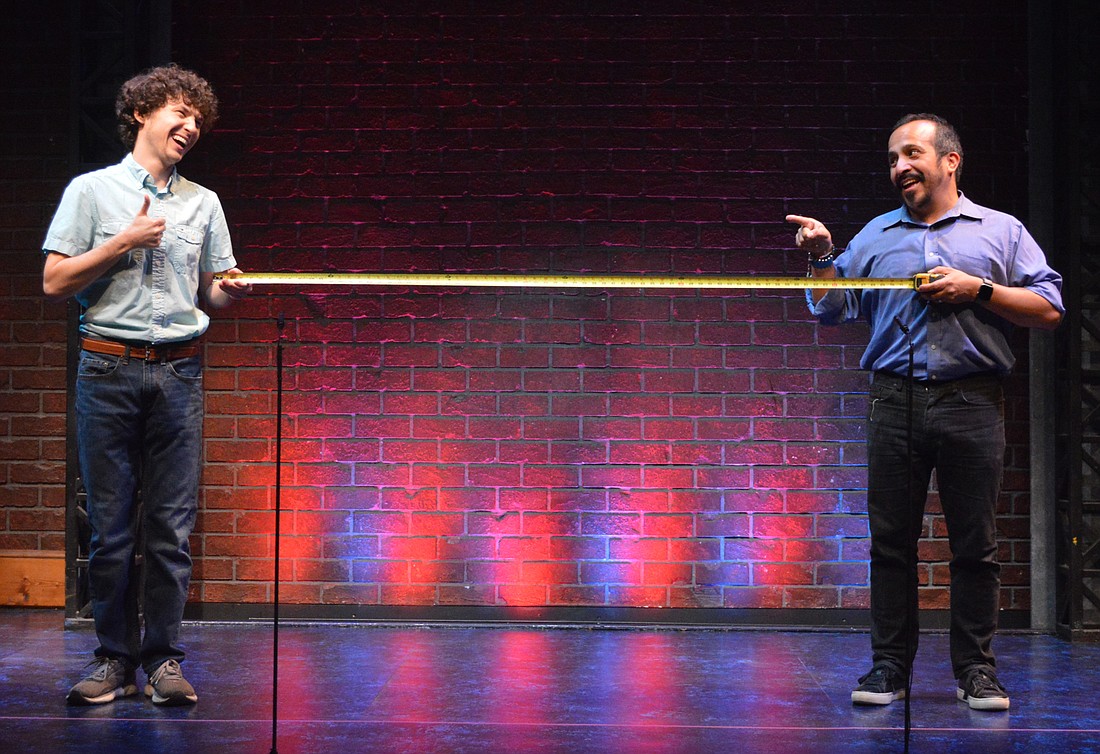- April 4, 2025
-
-
Loading

Loading

On Friday, June 19, McCurdy’s Comedy Theatre hosted its first show since shutting down operations in March.
Earlier in the week, the comedy club announced a series of measures taken to comply with the state’s phase two reopening guidelines and to mitigate the risk of spreading the coronavirus.
The audience size was limited to 50% of standard capacity, which allowed for between 90 and 120 people in the showroom. Tables were spaced to maintain 6 feet of distance.
Visitors were required to wear masks when entering and exiting the theater but were allowed to remove them once seated at their tables. Workers checked the temperature of patrons as they arrived. The theater touted new air filters and enhanced disinfecting procedures.
Ahead of the show, McCurdy’s shared a series of Facebook posts excitedly promoting a long-awaited grand reopening. Then, on Monday, another Facebook post brought a new announcement: McCurdy’s was closing again until further notice.
“As we see the virus numbers increasing in Florida, we will voluntarily remain closed at this time,” the post stated.
The reopening and reclosing of McCurdy’s highlights a challenge facing Sarasota venue and attraction operators. Although the state is in the second phase of its step-by-step reopening, allowing businesses to resume activity at a reduced volume, it doesn’t necessarily mean shows can safely restart at local theaters.
Some institutions have found ways to welcome the public back while following state and federal guidelines. Florida Studio Theatre launched a series of socially distanced improv shows earlier this month, the first step the organization has taken to resume in-person performances.
FST Managing Director Rebecca Hopkins said it’s been exciting and rewarding to get back in front of an audience, but she made clear that’s only been possible because the performances have taken place under a specific set of circumstances. There are only two shows a week, held Friday and Saturday nights. Bowne’s Lab Theatre has been reconfigured with an audience capacity of 30 to ensure proper spacing. Only three performers are on stage at a time.
Anything more ambitious than that, Hopkins said, and the theater wouldn’t be able to feel confident about the safety of those in attendance. In other words: Don’t expect Florida Studio Theatre to reopen its larger performance spaces anytime soon.
“We can’t,” Hopkins said. “You cannot move that number of people through while maintaining distance.”
Hopkins said other performing arts venues in the area are dealing with the same issues. Entertainment spaces have significant COVID-19 challenges, designed for people to be seated indoors in close quarters for extended periods of time, often while performers are singing or projecting their voices. And even if the logistical issues can be sorted out, arts organizations must confront financial challenges if they operate at significantly reduced capacity.
Jim Shirley, executive director of the Arts and Cultural Alliance of Sarasota County, said the nonprofit is involved in a regional effort to help assist organizations navigating challenges associated with COVID-19 ahead of any potential reopening. Shirley said that initiative includes two active committees with representatives from venues of varying sizes.
The first committee is studying best practices on reopening policies, by examining venues from across the country to determine how other facilities have safely resumed activity. Shirley said he hopes the group will finalize a series of recommendations soon, creating a resource for local arts leaders. One obstacle holding things up: keeping up to date with evolving guidelines at the state and federal levels.
“Just as a community and as a society, we have to be patient because we’re all learning form the same playbook,” he said. “And that playbook keeps changing.”
The second committee is focused on exploring opportunities for alternative arts programming while traditional venues remain closed. He said the group is discussing options with the county and investigating whether public properties, such as parks, could serve as sites for outdoor performances. The goal, Shirley said, is to get audiences in front of performers as soon as possible while keeping everybody safe — acknowledging business as usual likely won’t be viable anytime soon.
“I think factually, it’s very doubtful that many — if any — of the current performing arts centers in the area will open for performances on any sort of a steady basis at any point in the next several months,” Shirley said.
Outside of the theater world, some other attractions have been able to reopen to visitors. Museums, such as The Ringling and Marie Selby Botanical Gardens, have resumed activity in both outdoor and indoor spaces.
In addition to distance requirements at Selby Gardens, masks are mandatory in all indoor spaces, most of which are only open for four hours daily. Ticket sales have shifted to a contactless system. Selby President and CEO Jennifer Rominiecki said that the process of welcoming guests back on the property has gone well thus far. She said the nonprofit would remain focused on safety as a top priority as phased reopening continues.
“I think the most important thing about the situation that we’re all in is the ability to be flexible and adapt and make adjustments,” Rominiecki said. “I think that’s key. If we feel we have to make adjustments, we absolutely will.”